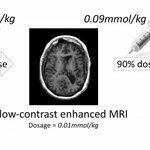
Tomato plants emit a volatile compound named hexenyl butyrate which can be used for closing the stomata, key in protecting plants from bacterial attacks.
But Center for Science in the Public Interest and Environmental Working Group don't need to mobilize the trial lawyers, this volatile compound is all natural. That means is could be a new strategy for protecting crops from biotic and abiotic stress and improving yields, all without sound like scary science to their attorneys.
It's also easy to yes because it is a volatile compound. It can be applied by spraying onto…








